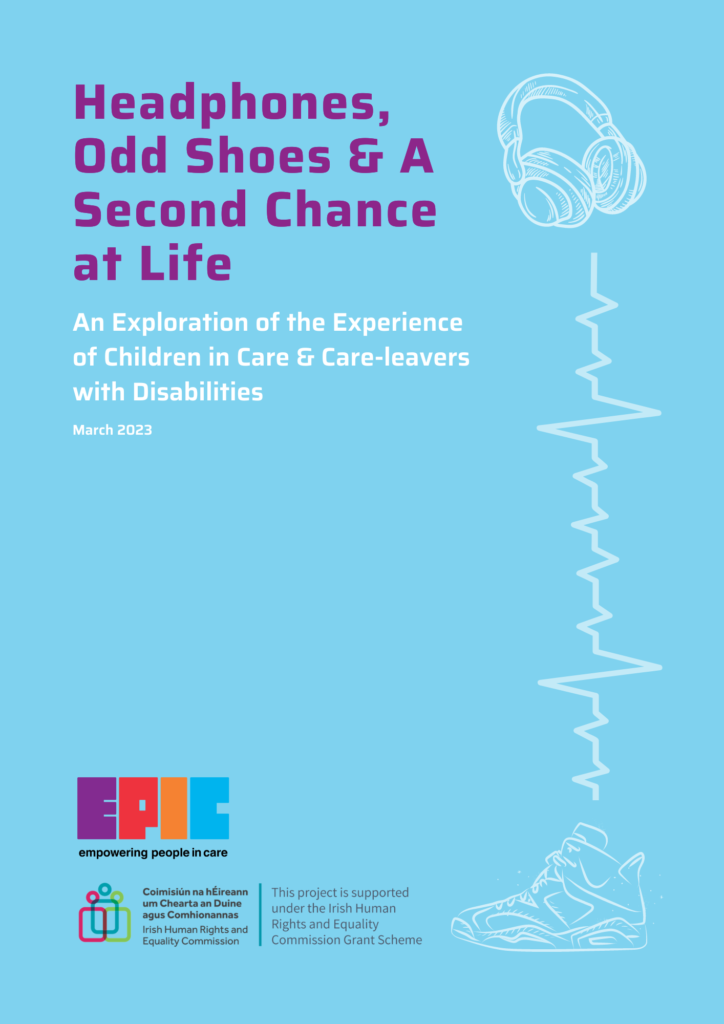Headphones, Odd Shoes & A Second Chance at Life (2023)
An Exploration of the Experience of Children in Care & Care-leavers with Disabilities
“For the ‘Headphones’, I would say… kind of you’re in your own reality, you’re not really paying attention to the world, and you’re just getting on with your day-to-day life as best you can. And ‘Odd Shoes’ because not all of us fit in the same category or the same box, some people like to be odd and have their own personalities”.
Overview
In November 2021, EPIC commissioned Deborah Erwin to conduct an exploratory study of the lived experience of children in the care system, and young people after care with disabilities.
The study has four aims and is centred on the following questions:
- To develop an understanding of the experiences of children and young people with disabilities while they are in care, in aftercare services or who have experience of the care system up to the age of 26.
- To enable these children and young people to directly participate in awareness raising, in line with their rights under the UN Convention on the Rights of Persons with Disabilities (UNCRPD) and the UN Convention on the Rights of the Child (UNCRC).
- To generate evidence to support policy makers and practitioners to progress implementation of the UNCRPD amongst children and young people in the care system and in aftercare services.
- To explore the level of knowledge amongst care-experienced children and young people on the UNCRPD.

